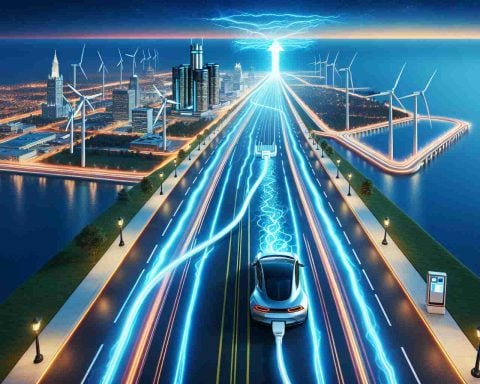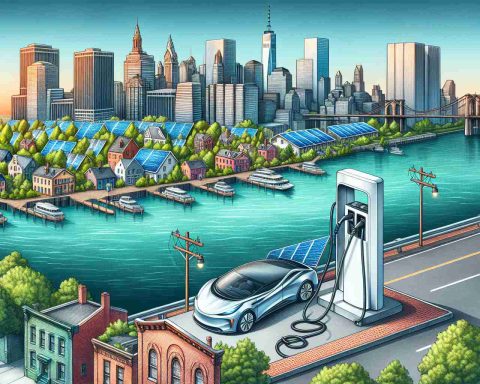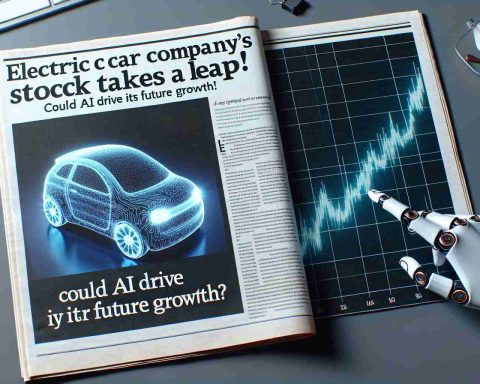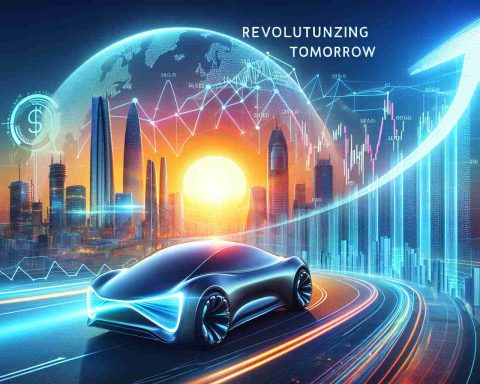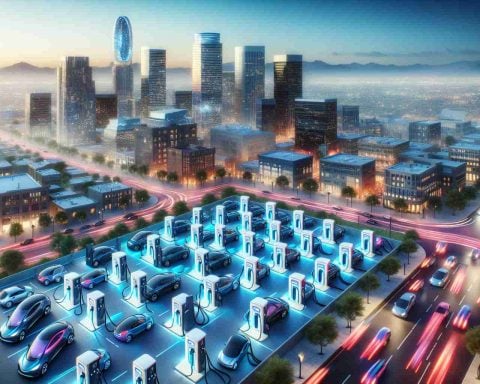Transforming Lincoln’s Electric Vehicle Landscape
The City of Lincoln is taking significant steps to enhance electric vehicle (EV) accessibility with a substantial grant of $640,000 from the U.S. Department of Transportation. This initiative, known as the Electric Vehicle Charging Project, aims to facilitate charging access for over 1,650 multifamily housing units within a convenient 10-minute walk from designated charging stations.
The project will target five specific census tracts with a combined population exceeding 23,000 residents. Notably, these areas have a diverse racial and ethnic demographic, making up 31.5% of the population, alongside a poverty rate of 24%. Plans include installing two charging stations at each of the selected five sites, which will provide a total of 20 charging ports. The sites earmarked for this development include Seng Park, Van Dorn Park, Eiseley Branch Library, Malone Center, and the forthcoming Multimodal Transportation Center.
This $800,000 initiative—comprising the federal grant and additional funding from the City—is designed to promote wider EV adoption and significantly reduce barriers for residents. As part of the city’s overarching Climate Action Plan, Lincoln aims for an ambitious 80% reduction in greenhouse gas emissions by 2050. A portion of the grant will be dedicated to community engagement, aiming to inform residents about the benefits and usage of electric vehicles, thereby fostering a cleaner and more sustainable transportation future.
Transforming Lincoln’s Electric Vehicle Landscape
The City of Lincoln’s recent initiative to improve electric vehicle (EV) accessibility not only marks a pivotal shift in urban transportation but also sets a benchmark for environmental stewardship and economic growth. The project, backed by a generous $640,000 grant from the U.S. Department of Transportation, highlights the city’s commitment to sustainable development and climate action.
Environmental Impact
By facilitating the availability of EV charging stations, this project plays a crucial role in addressing climate change through reduced greenhouse gas emissions. The installation of charging infrastructure in areas with a diverse demographic and significant poverty rates will empower more residents to choose electric vehicles, ultimately contributing to a decrease in fossil fuel dependence. The project’s target of an 80% reduction in greenhouse gas emissions by 2050 aligns with a broader global effort to mitigate climate change and its effects on ecosystems and human health. The move towards electric vehicles also means a reduction in air pollutants, which significantly benefits public health, particularly in lower-income neighborhoods that may struggle with air quality issues.
Economic Considerations
From an economic perspective, the Electric Vehicle Charging Project can bolster local economies by attracting new businesses and encouraging the adoption of green technology. As charging stations become more prevalent, it creates an ecosystem that supports the EV industry, leading to potential job creation in installation, maintenance, and local EV-related services. Furthermore, as residents shift from gasoline vehicles to electric alternatives, there is potential for significant savings in fuel costs, which can be redirected into the local economy. This shift can stimulate further investment in clean energy technologies, making Lincoln a model for other cities aiming to modernize their transportation infrastructure while remaining environmentally conscious.
Global Connections and the Future of Humanity
The strategic initiative in Lincoln mirrors a growing global trend towards electrification and renewable energy sources, which is critical for achieving international climate goals, such as those outlined in the Paris Agreement. As cities around the world promote sustainable transportation solutions, the cooperation between federal, state, and local governments becomes paramount to creating lasting change.
The importance of the project extends beyond Lincoln; it serves as a case study for other municipalities, particularly those with diverse populations facing economic hardships. By ensuring equitable access to EV charging stations, Lincoln is setting a precedent for how sustainable transportation initiatives can be designed to serve all community members, thereby fostering inclusion while addressing climate change.
As humanity advances towards a more sustainable future, the decisions made today regarding transportation infrastructure and clean energy adoption will influence the quality of life for generations to come. Initiatives like the Electric Vehicle Charging Project are not merely local improvements; they are foundational steps towards a sustainable world where clean air and economic equity are reachable for all, emphasizing the vital connection between environmental actions and societal progress.
Lincoln’s Bold Move Towards a Greener Electric Vehicle Future
Transforming Lincoln’s Electric Vehicle Landscape
The City of Lincoln is making significant strides in improving electric vehicle (EV) accessibility, recently announced through a $640,000 grant from the U.S. Department of Transportation. This initiative, known as the Electric Vehicle Charging Project, is designed to enhance charging access for over 1,650 multifamily housing units within a convenient 10-minute walk from newly designated charging stations.
Overview of the Project
The project will focus on five specific census tracts, collectively home to over 23,000 residents. These targeted areas not only feature diverse racial and ethnic demographics—comprising 31.5% of the total population—but also face socio-economic challenges, as evidenced by a poverty rate of 24%. The initiative plans to install two charging stations at each of the five sites, totaling 20 charging ports across Lincoln. The planned locations include:
– Seng Park
– Van Dorn Park
– Eiseley Branch Library
– Malone Center
– The upcoming Multimodal Transportation Center
This $800,000 project, funded by the federal grant combined with additional contributions from the City, aims to eliminate barriers that prevent residents from adopting electric vehicles.
Benefits of the EV Charging Project
1. Increased Accessibility: The project will bring charging stations closer to residents, making it more convenient for current and potential EV owners to access charging facilities.
2. Community Engagement: A crucial component of the project is the outreach and education aimed at residents. Community engagement efforts will focus on informing local citizens about the benefits of electric vehicles, promoting sustainable transportation options, and demonstrating how these vehicles can contribute to cleaner air and reduced greenhouse gas emissions.
3. Environmental Impact: This initiative aligns with Lincoln’s broader Climate Action Plan, which sets an ambitious goal of reducing greenhouse gas emissions by 80% by 2050. By making EV charging more accessible, the city anticipates a boost in EV adoption that will contribute to this plan.
Pros and Cons of the Initiative
Pros:
– Enhances EV infrastructure and accessibility.
– Supports socio-economically diverse communities.
– Aids in achieving environmental sustainability goals.
– Promotes education around electric vehicle usage.
Cons:
– Initial funding and long-term maintenance costs.
– The potential need for additional infrastructure if EV adoption accelerates faster than expected.
– Community skepticism about the practicality of electric vehicles in the short term.
Future Implications
Lincoln’s Electric Vehicle Charging Project is part of a broader trend toward sustainable urban transportation solutions. As cities across the country invest in EV infrastructure, the landscape of urban mobility is evolving, with an emphasis on reducing reliance on fossil fuels.
Pricing and Specifications
While the project’s funding structure is clear, specific pricing for using the charging stations has not yet been disclosed. However, it can be anticipated that the City will explore a range of pricing options to ensure affordability for residents.
Conclusion
With its new Electric Vehicle Charging Project, Lincoln not only aims to enhance its EV infrastructure but also strives to create a more sustainable and informed community. As the city pushes forward, the expected outcomes will likely serve as a model for similar initiatives in other urban environments.
For more information on Lincoln’s sustainability efforts, visit lincoln.ne.gov.



